Derm - work in progress
1/47
There's no tags or description
Looks like no tags are added yet.
Name | Mastery | Learn | Test | Matching | Spaced | Call with Kai |
|---|
No analytics yet
Send a link to your students to track their progress
48 Terms
macule/patch
primary
What lesion is this? Is it primary or secondary?
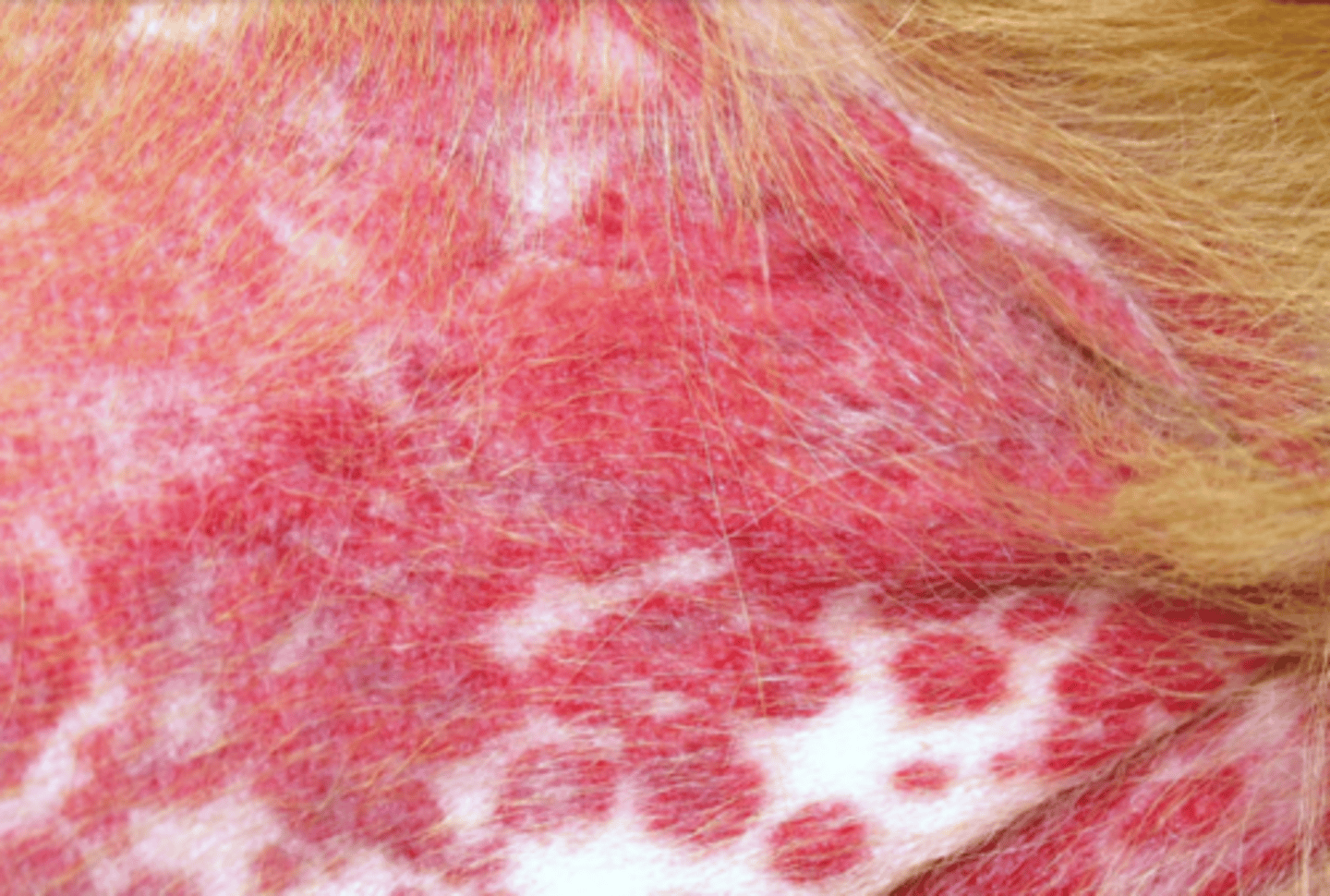
papule
primary
What lesion is this? Is it primary or secondary?
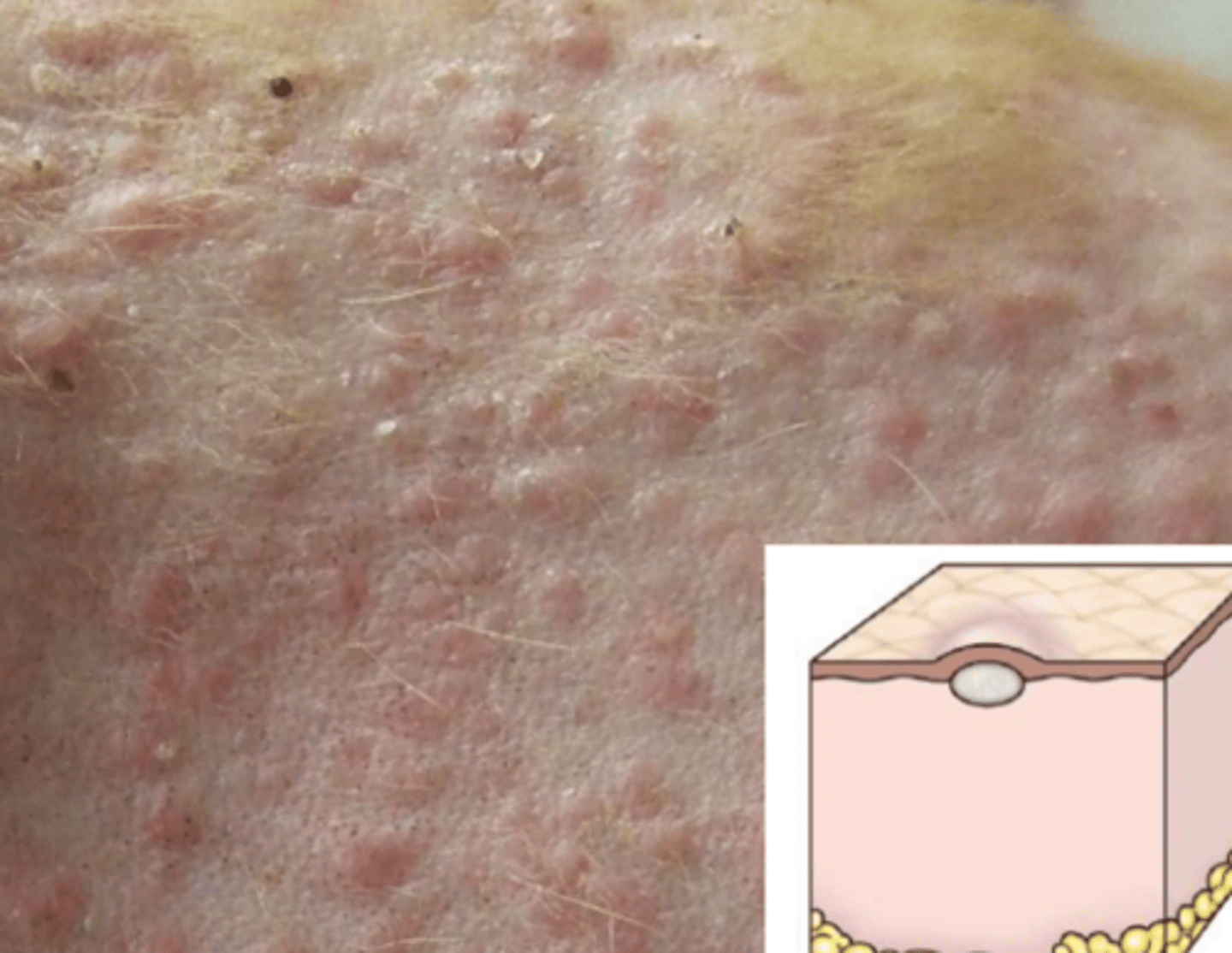
pustule
Papules eventuate into __________ (other lesion)
pustule
primary
What lesion is this? Is it primary or secondary?
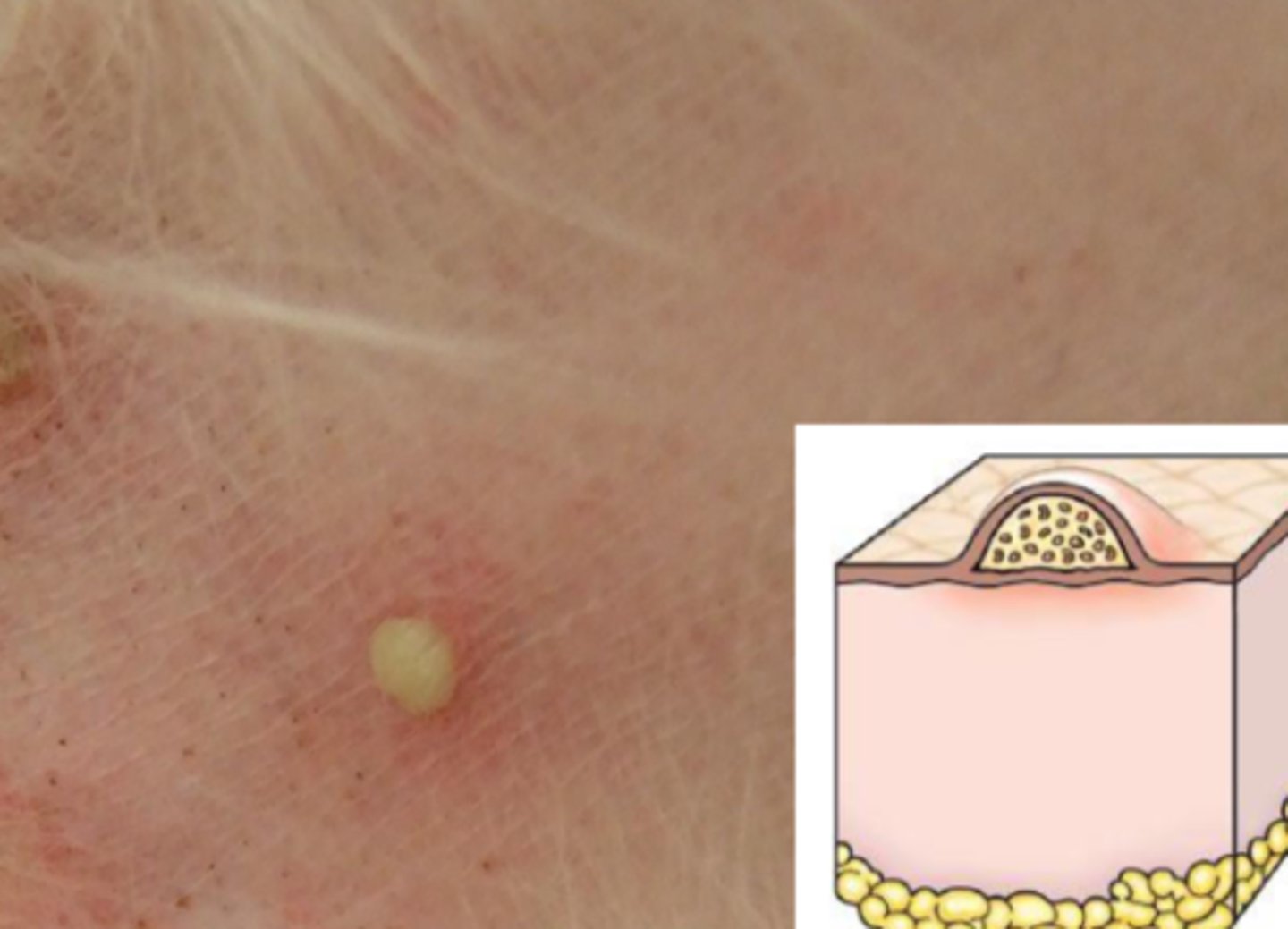
plaque
primary
What lesion is this? Is it primary or secondary?
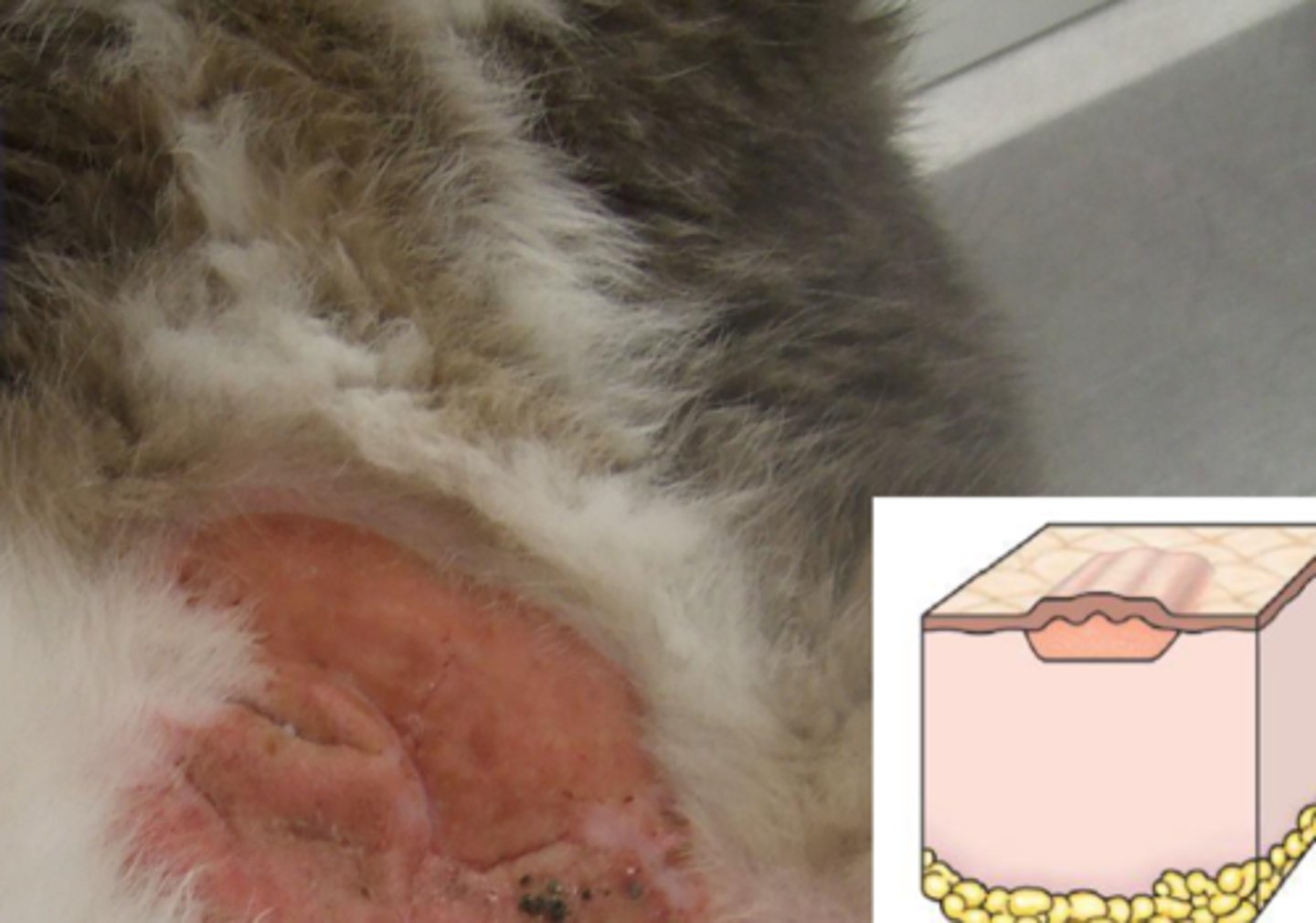
vesicle/bulla
primary
What lesion is this? Is it primary or secondary?
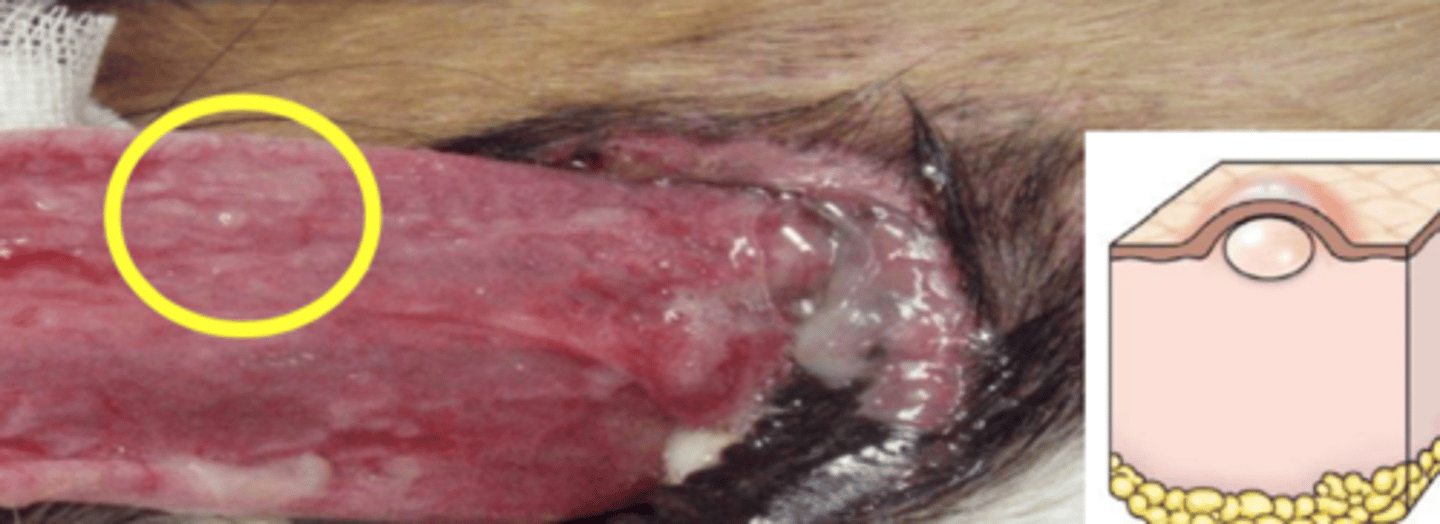
Nodule
primary
What lesion is this? Is it primary or secondary?
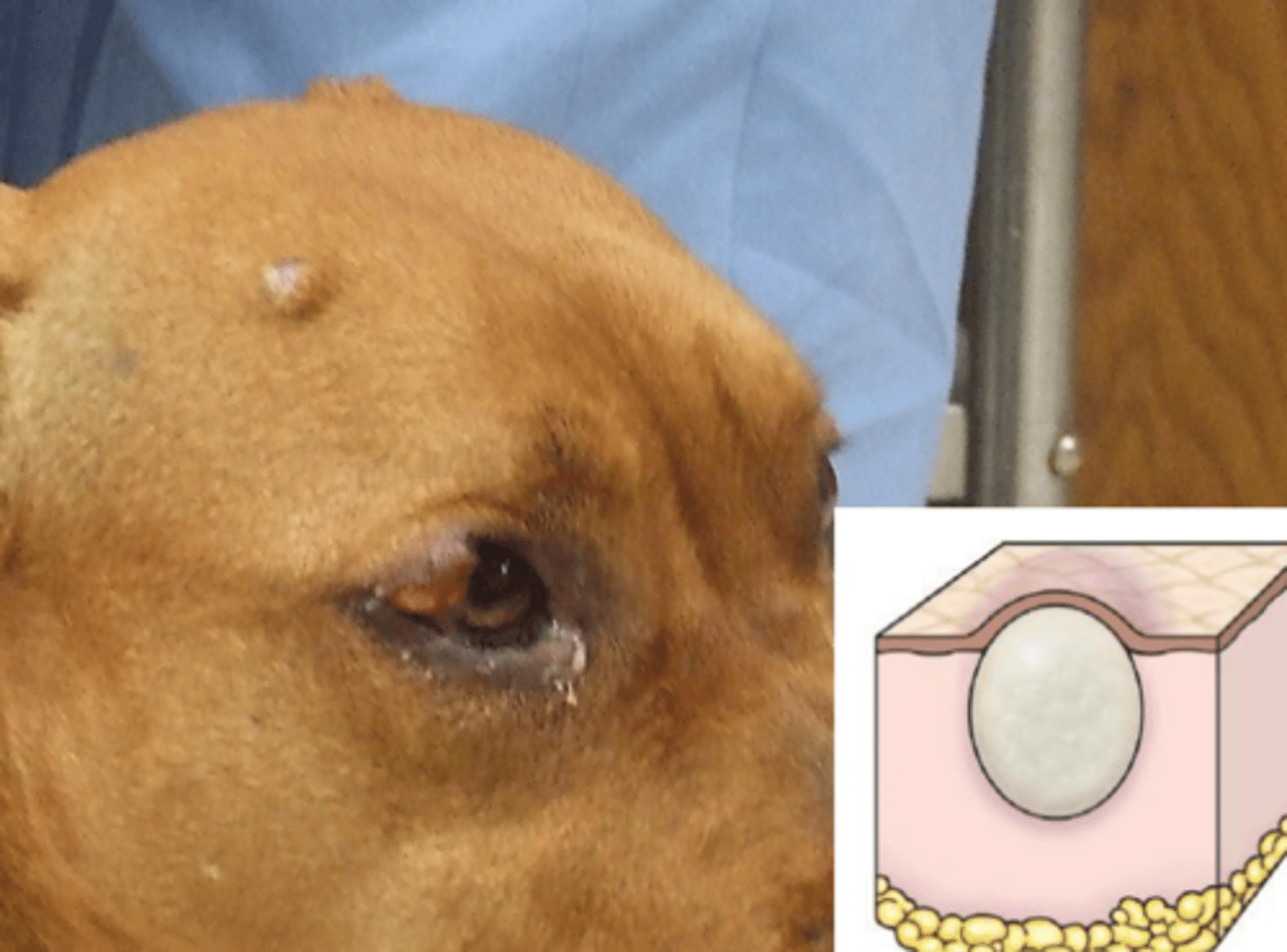
Wheal/Urticaria
primary
What lesion is this? Is it primary or secondary?
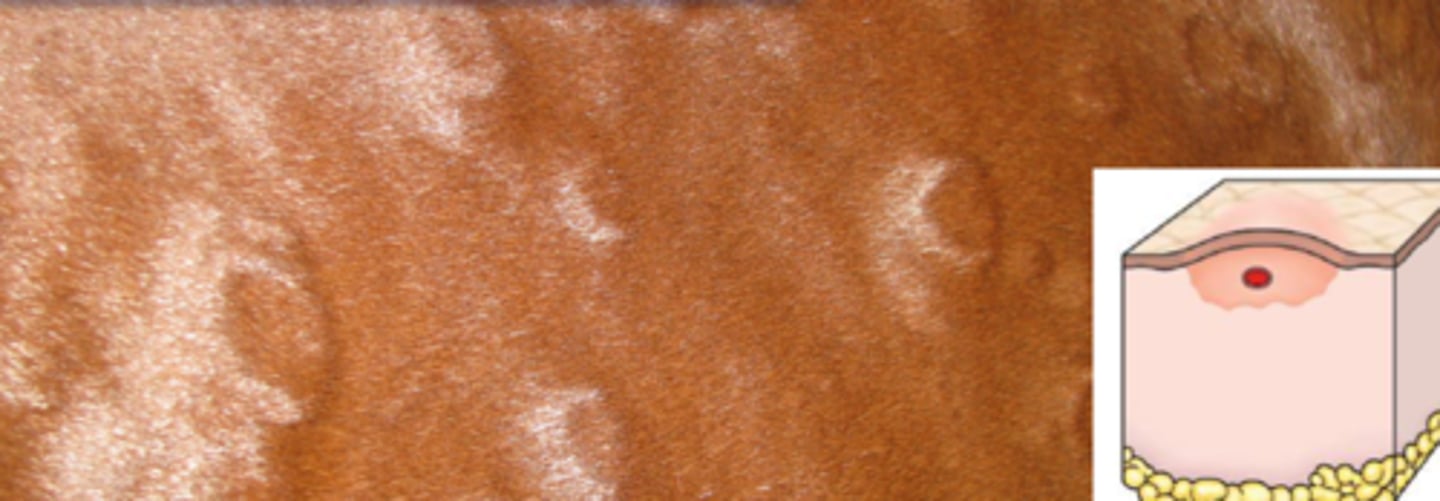
Epidermal collarette
secondary
What lesion is this? Is it primary or secondary?
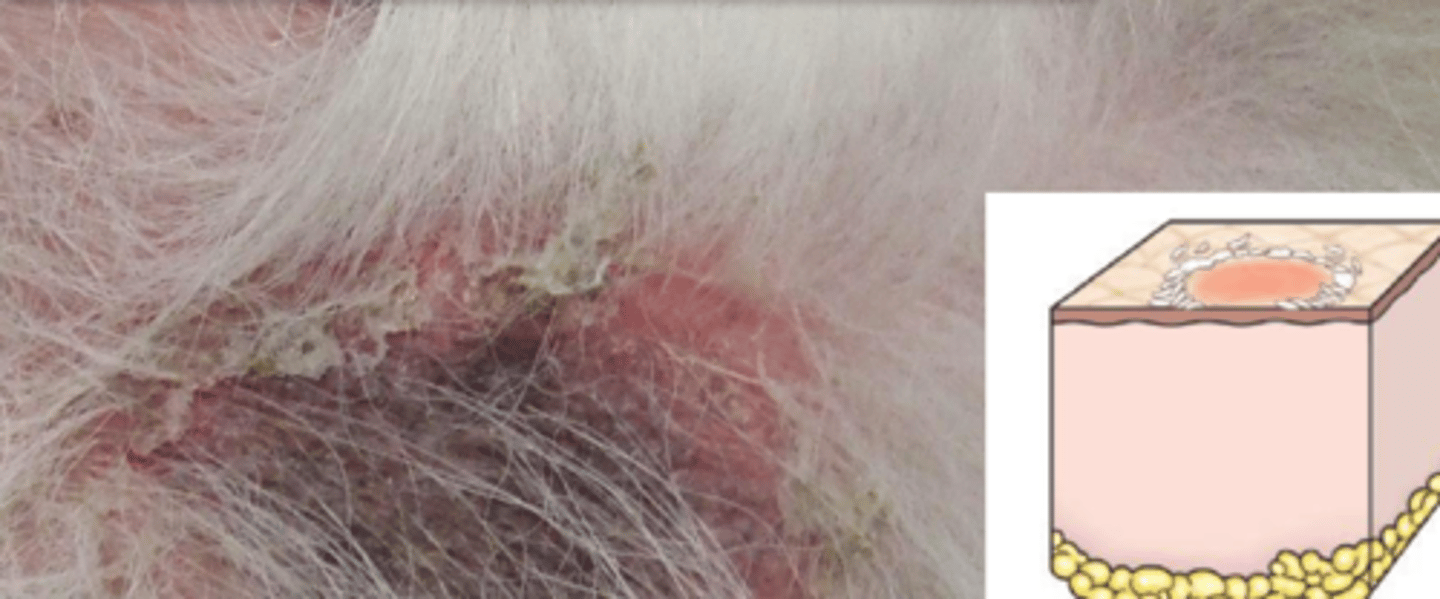
Erosion/ulcer
secondary
What lesion is this? Is it primary or secondary?
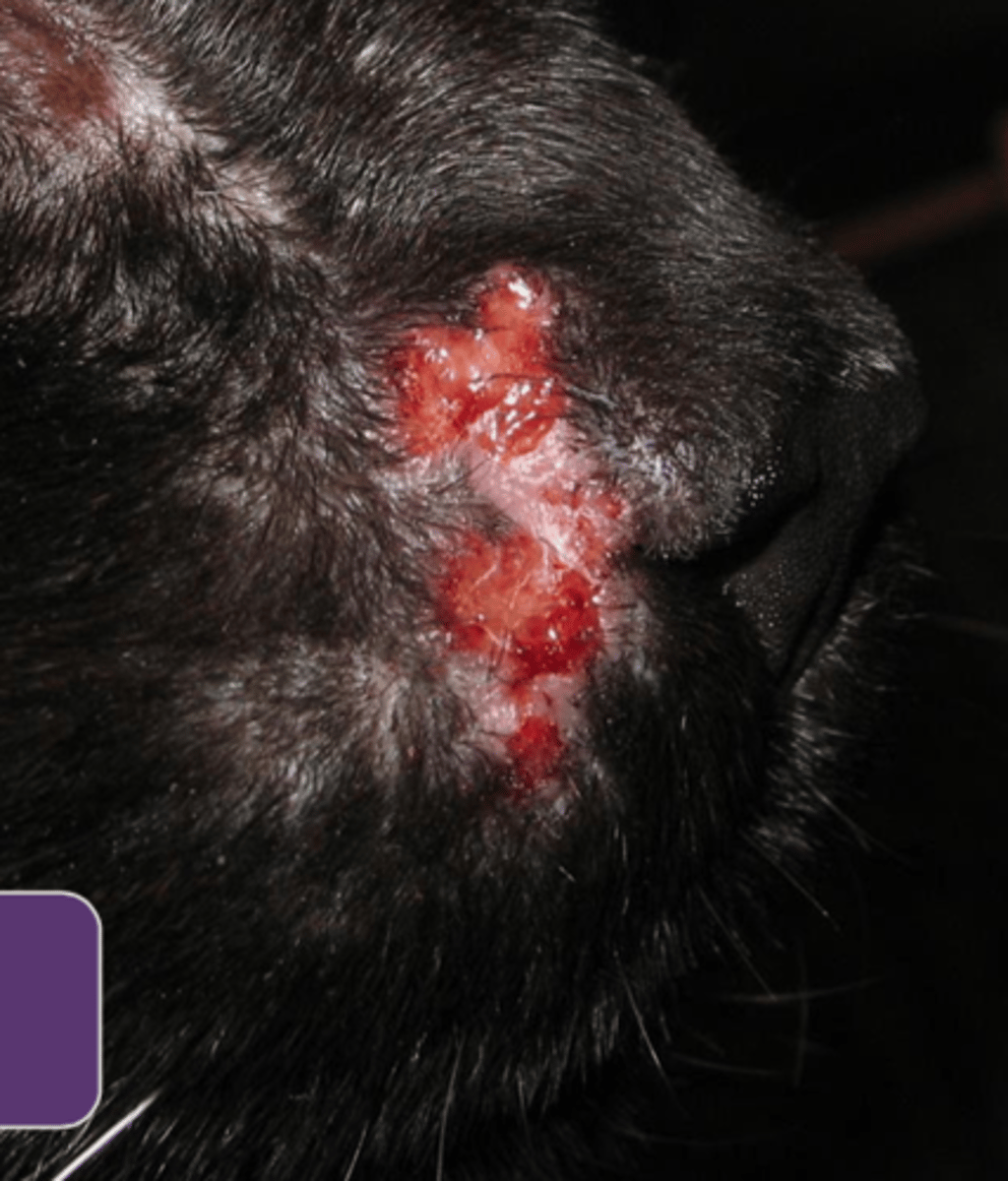
a vescicle/bulla!
Knowing that an erosion and ulceration are both secondary lesions - what is their corresponding primary lesion that preceded them?
Lichenification
secondary
What lesion is this? Is it primary or secondary?
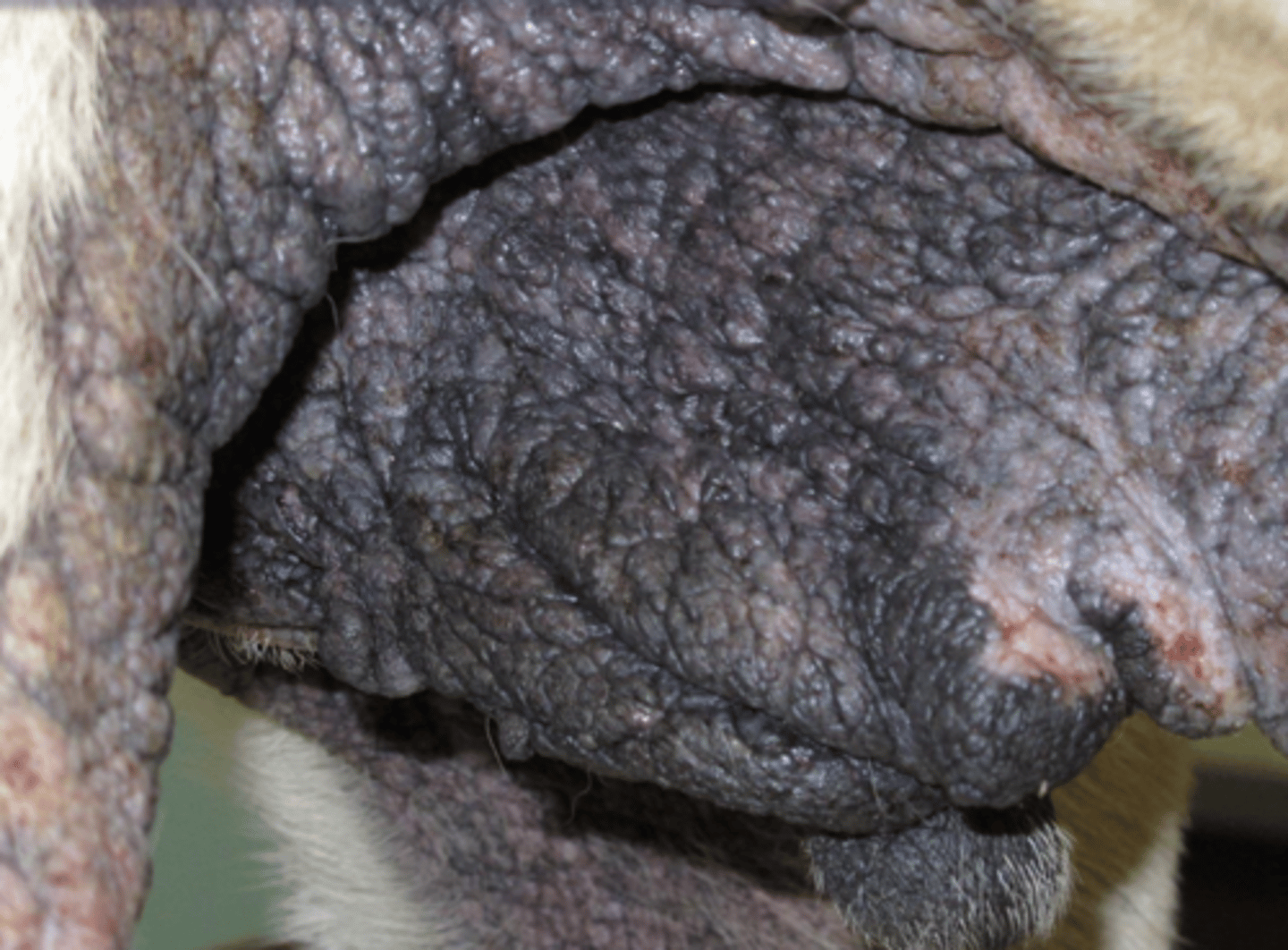
Excoriation
secondary
What lesion is this? Is it primary or secondary?
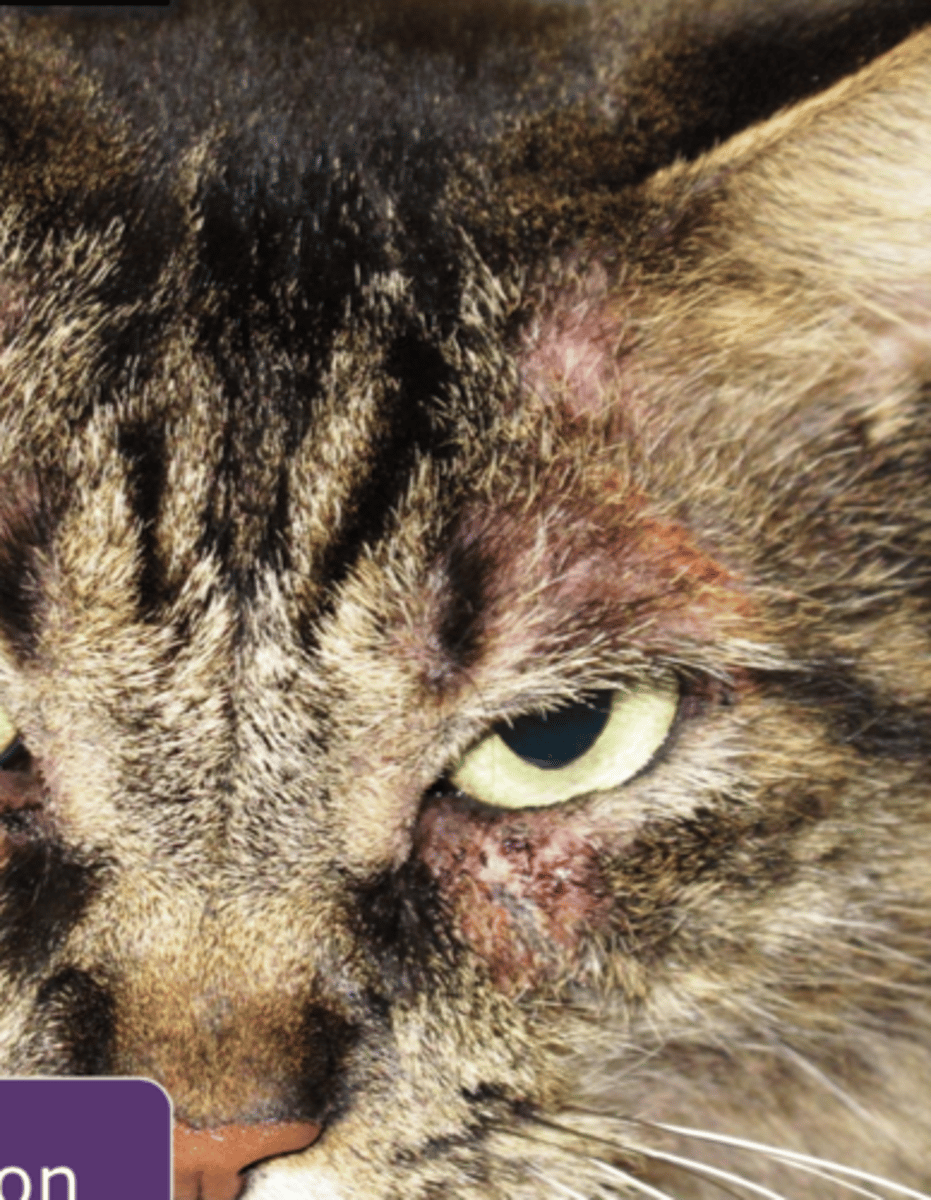
Scale
it can be primary or secondary
What lesion is this? Is it primary or secondary?
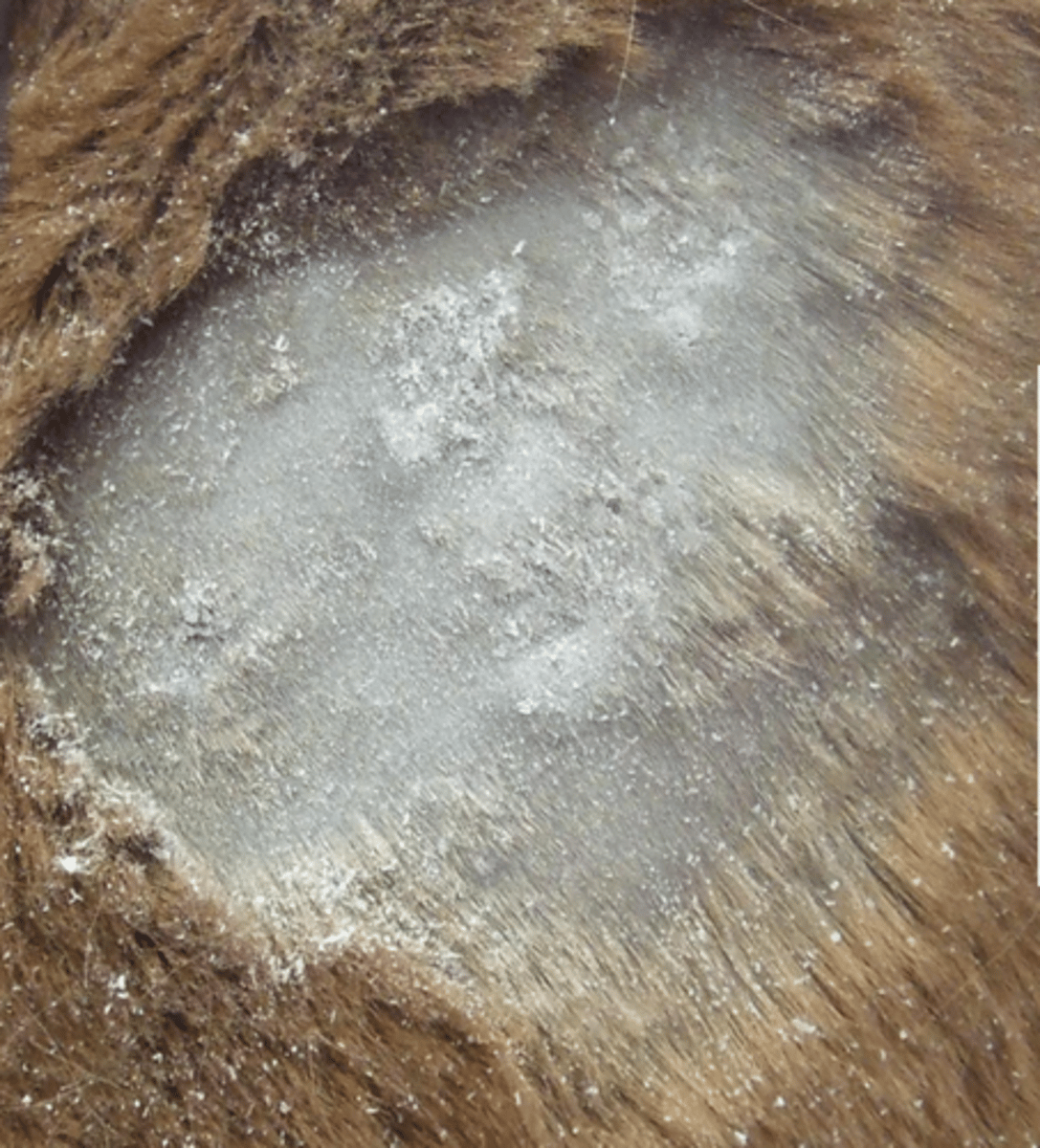
Crust
it can be primary or secondary
What lesion is this? Is it primary or secondary?
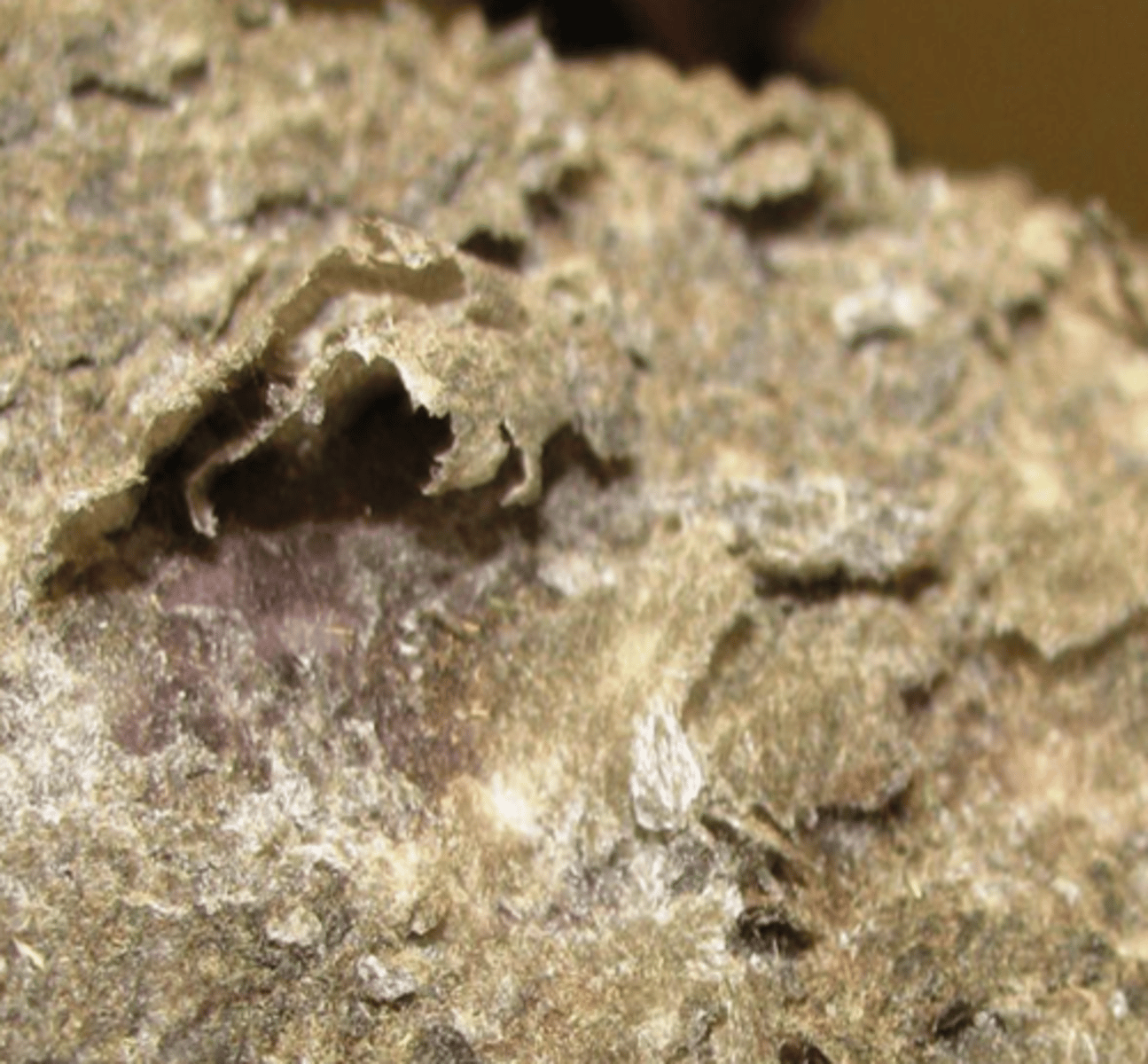
a pustule!
Knowing that a crust can be either primary or secondary - if it is in fact a secondary lesion, what would be the most probable primary lesion that proceeded the crust?
Follicular casts
it can be primary or secondary
What lesion is this? Is it primary or secondary?
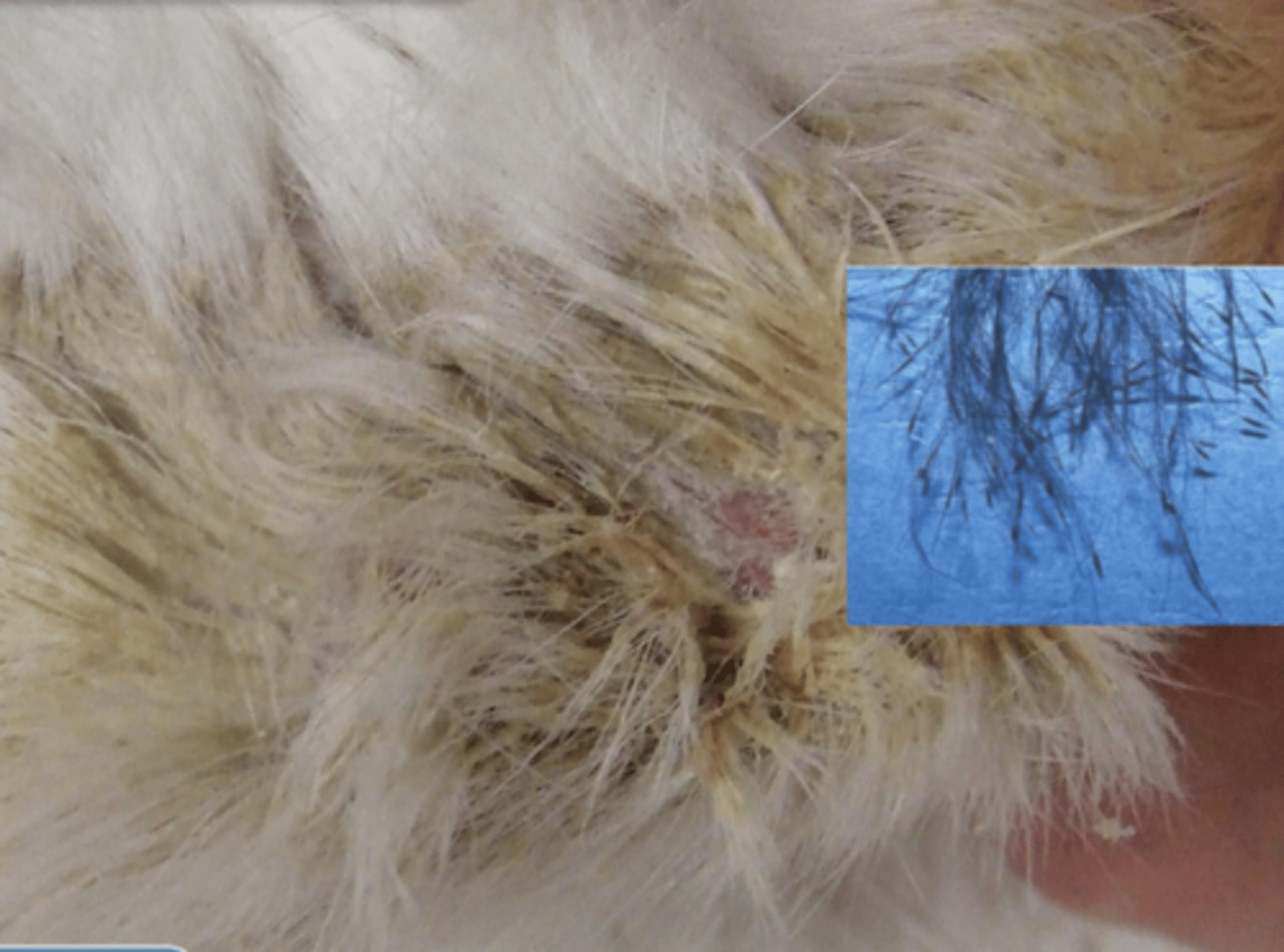
Comedo/comedones
it can be primary or secondary
What lesion is this? Is it primary or secondary?
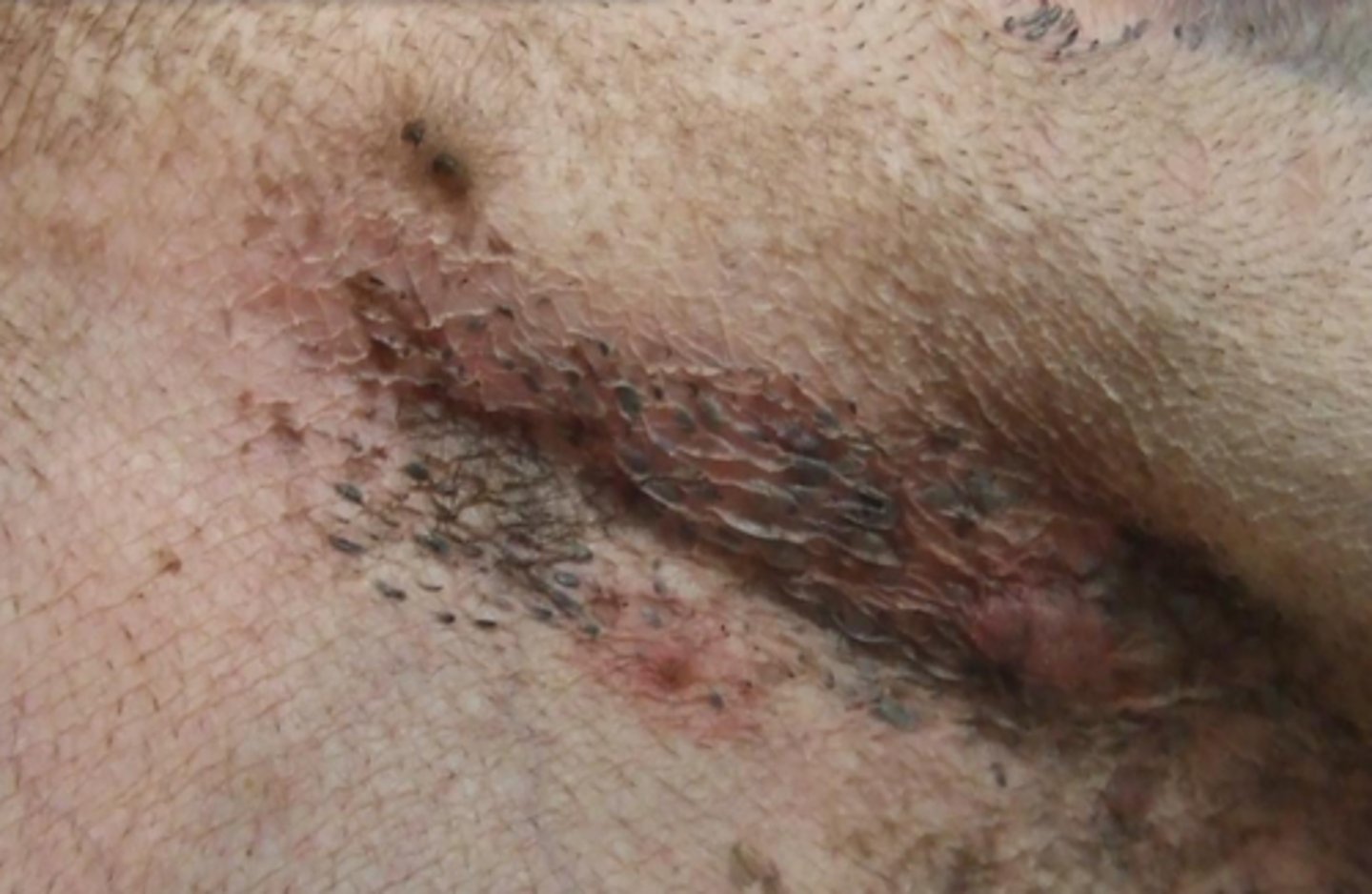
Hyperpigmentation
it can be primary or secondary
What lesion is this? Is it primary or secondary?
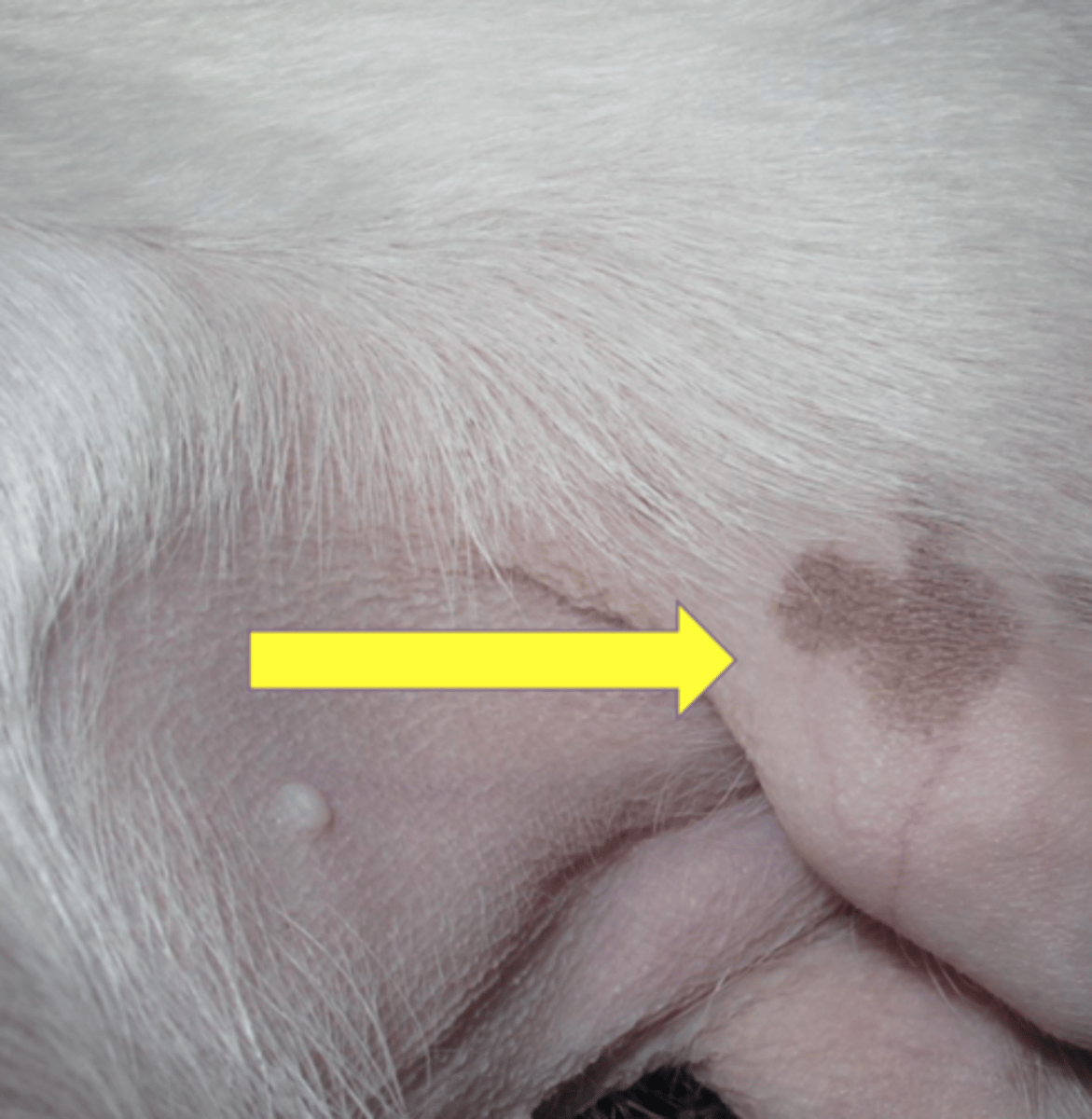
Hypopigmentation/Depigmentation
It can be primary or secondary
What lesion is this? Is it primary or secondary?
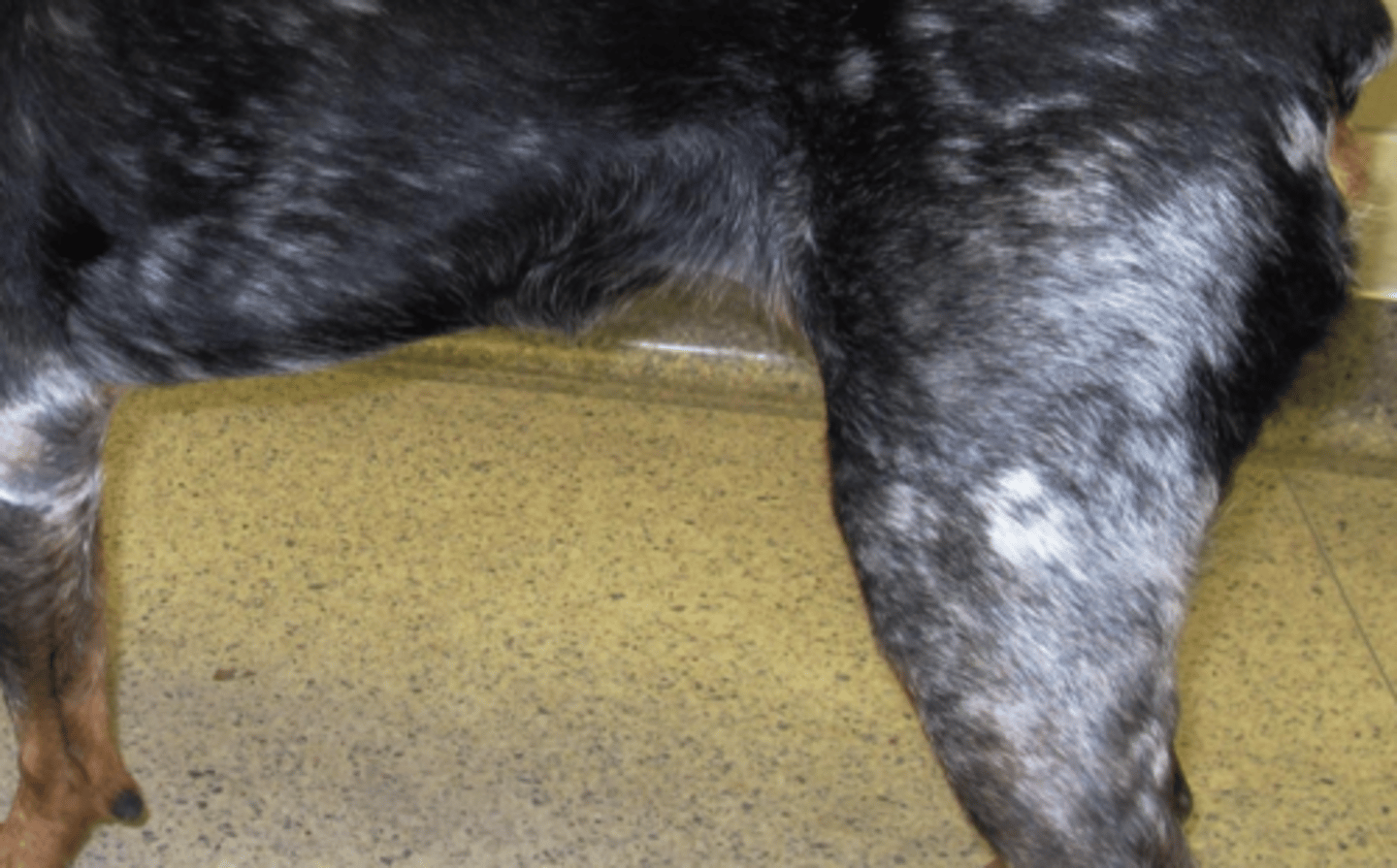
Alopecia
it can be primary or secondary
What lesion is this? Is it primary or secondary?
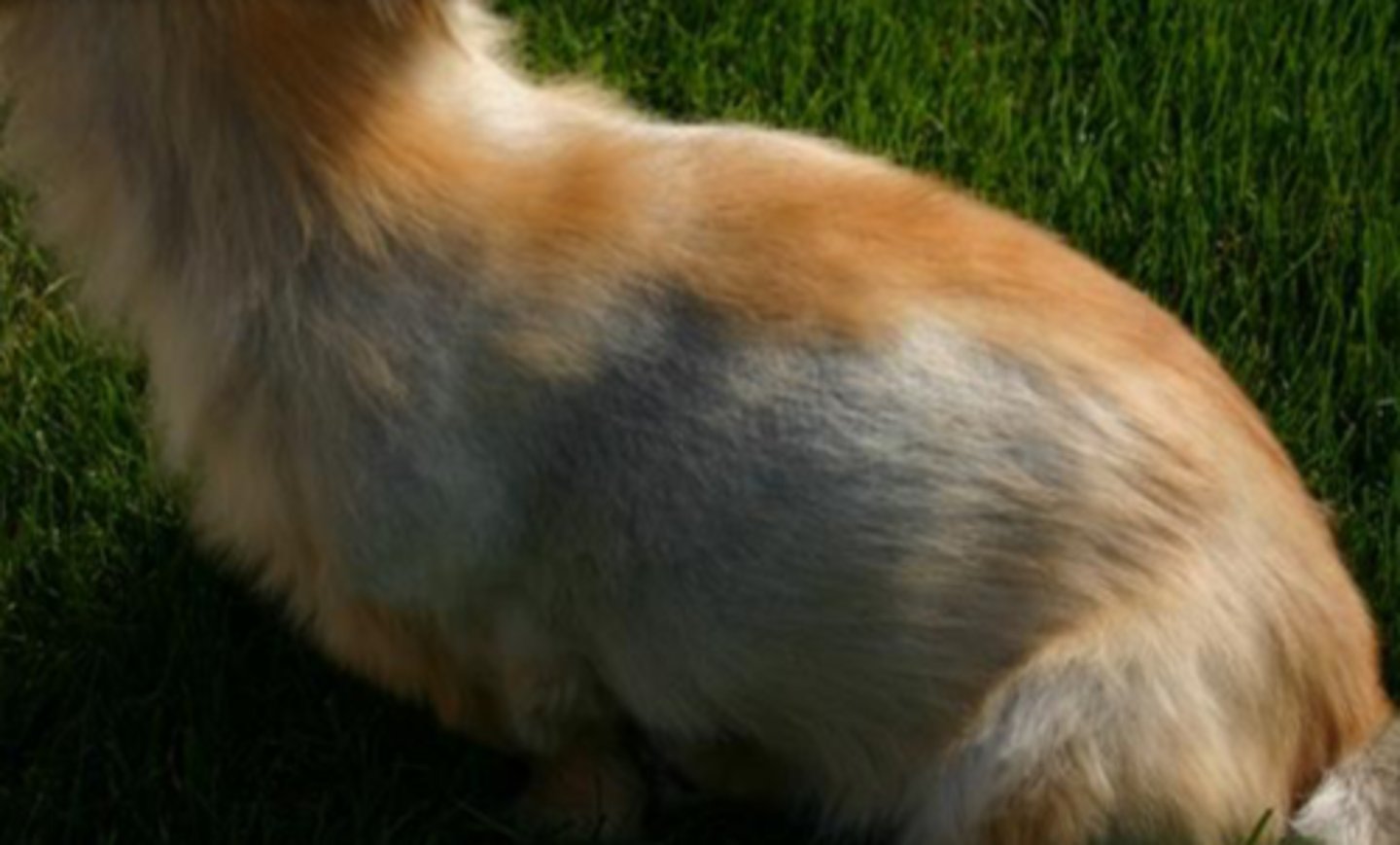
macule
scales
lichenification
excoriation
erosion
epidermal collarette
plaque
What sort of lesions are best for acetate tape cytology?
papule
pustules
lichenification
crust
erosion
epidermal collarette
plaques
What sort of lesions are best for direct impression slide cytology?
difficult to reach, sensitive places
interdigital spaces
lip/skin folds
Where on the body would you prefer to collect a sample using tape?
yeast
bacteria
What sort of etiological agents might you pick up on tape cytology?
yeast
bacteria
What sort of etiological agents might you pick up on direct impression cytology?
papule
callus
lichenification
crust
scale
epidermal collarette
erosion
excoration
suspected mites
What sort of lesions would lead you to pursue superficial skin scraping on your patient?
demodex
What sort of lesions would lead you to pursue deep skin scraping on your patient?
it has a rounded edge, which decreases the chance of laceration
What are some benefits to using a laboratory spatula as opposed to a scalpel blade for skin scraping?
mites - sarcoptes
lice
otodectes
fleas (flea dirt)
What parasites would you expect to identify from a superficial skin scraping?
mites - demodex
Which parasites would you expect to identify from a deep skin scraping?
potentially any lesion
What sort of lesions on the patient may indicate a need for biopsy?
NO!
because then you've lost your diagnostic sample
Should the surface of the skin be scrubbed/prepped prior to biopsy of a superficial lesion?
newer
________ lesions are more helpful for obtaining a meaningful biopsy
punch biopsy!
For a papule, would you take a punch biopsy or an FNA to get a diagnostic sample?
FNA!
For a pustule, would you take a punch biopsy or an FNA to get a diagnostic sample?
You'll want to lift up the crust with a scalpel blade and do an impression cytology of what's underneath
If ya got a crusty crust lesion - how/where would you get your diagnostic sample?
Alopecia
papules
scale
crust
hyperkeratosis
What kind of lesions would you attain a skin scraping of?
1) To support a suspicion of dermatophytosis caused by M. canis
2) Used to select fluorescent hairs for fungal/DTM culture and trichoscopy
Why would you even whip out a Wood's lamp to scan a patient?
will help us narrow down our diff. diagnoses because certain conditions/diseases are more common in certain ages and they also have will different chronicity
Why would knowing the age of your patient and the age of onset of a certain derm problem be useful?
parasites
genetic things
What are some derm. conditions we think of as common in neonate to 1month old patients?
allergies
autoimmune conditions
What are some derm. conditions we think of as common in our adult animals?
endocrine/metabolic
neoplasia
degenerative
What are some derm. conditions we think of as common in our senior animals?
certain infectious diseases have specific geographic distribution or a certain seasonality. This is also to help also narrow our diff. diagnoses
Why would we ask in a derm history about where a pet was from or their travel history?
This is a major factor in ruling in or out certain conditions/causes
Why would we ask the owner in a derm history about if their animal is itchy?
licking
chewing
biting
rubbing
scratching
head shake
booty scoot
What are specific behaviors that would would ask the owner if they've observed them in order to determine if the pet is itchy?
again - we ask in order to narrow down our differential diagnoses.
this might suggest the cause is infectious or environmental or their diet/food (if fed same thing) or potential toxicities
Why would we ask an owner if they have any other animals in their pet's environment that have similar skin problems? What skin conditions/diseases would be considered if the owner reports other animals have similar skin issues?
US
Complete the word for itch: prurit___